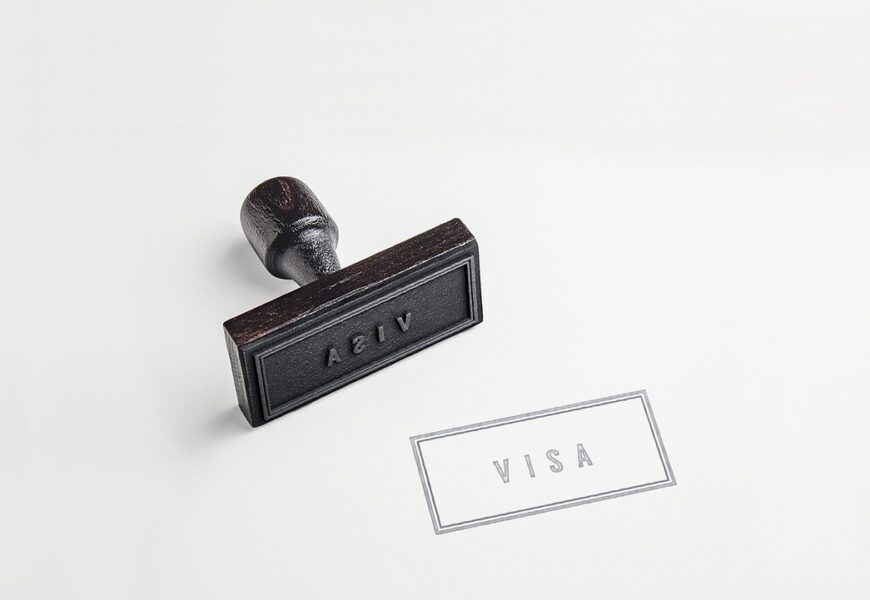Navigating the complex world of Thai visas can be challenging for travelers, expatriates, and business professionals seeking to enter or stay in Thailand. Understanding the intricacies of visa regulations is crucial for a smooth and legal entry into this vibrant Southeast Asian country. Thailand offers multiple visa categories designed to accommodate various travel purposes, from short-term tourism to long-term residency, each with its own specific requirements, documentation, and application processes.
The Thai visa system is known for its complexity and frequent regulatory changes, making it essential for potential visitors to stay informed about the most current guidelines. Whether you’re planning a brief vacation, considering long-term retirement, seeking employment, or exploring business opportunities, selecting the appropriate visa type is fundamental to ensuring a hassle-free experience in Thailand.
Tourist Visa Options for Thailand
Thailand provides several tourist visa options catering to different travel durations and purposes. The most common tourist visas include the Visa Exemption, Visa on Arrival, and Tourist Visa. The Visa Exemption allows citizens from 64 countries, including the United States, United Kingdom, and most European nations, to enter Thailand without a pre-arranged visa for up to 30 days. This option is typically granted upon arrival at international airports or land borders, providing a convenient entry method for short-term travelers.
The Tourist Visa (TR) offers a more extended stay option, allowing visitors to remain in Thailand for up to 60 days, with the possibility of a single 30-day extension. Applicants must apply at a Thai embassy or consulate before traveling, presenting supporting documents such as a valid passport, proof of sufficient funds, return ticket, and completed application forms. Fees vary depending on nationality and processing time, typically ranging from $30 to $50 for a single-entry visa.
Non-Immigrant Visa Categories
For individuals planning extended stays or specific purposes, Thailand offers various non-immigrant visa categories. The Non-Immigrant B Visa is designed for business professionals, employees, and investors, requiring sponsorship from a Thai company and supporting documentation proving employment or business engagement. Work permits are typically processed simultaneously with this visa type, allowing legal employment in Thailand.
The Non-Immigrant O Visa serves multiple purposes, including family reunification, retirement, and volunteer work. Retirees aged 50 and above can obtain a long-term stay permit by demonstrating financial requirements, typically proving monthly income or bank deposits of approximately 800,000 Thai Baht annually. This visa can be renewed yearly, providing a stable option for expatriates seeking to enjoy Thailand’s lifestyle and culture.
Retirement Visa Requirements
Thailand’s retirement visa has become increasingly popular among international seniors seeking an affordable and attractive retirement destination. To qualify, applicants must be at least 50 years old and meet specific financial criteria. The primary requirements include maintaining a Thai bank account with a minimum balance of 800,000 Baht or demonstrating a monthly income of at least 65,000 Baht. Applicants must also provide medical insurance coverage and undergo annual health checks.
The retirement visa initially grants a one-year stay, with relatively straightforward annual renewal processes. Many retirees appreciate the flexibility and quality of life offered by this visa category, which allows multiple entries and provides a pathway to long-term residency. However, applicants should be prepared to provide comprehensive documentation and meet strict financial and health requirements.
Work Visa and Permit Processes
Obtaining a work visa in Thailand involves a multi-step process requiring collaboration between the employee, employer, and immigration authorities. Foreign professionals must secure a job offer from a registered Thai company willing to sponsor their work permit. The employer must demonstrate that the position cannot be filled by a Thai national and comply with foreign employment regulations.
The typical work visa process involves obtaining a Non-Immigrant B Visa, followed by a work permit application. Required documents include educational certificates, professional qualifications, passport copies, and company registration documents. Processing times can range from two to eight weeks, and fees vary depending on the complexity of the application and the applicant’s nationality.
Visa Extension and Conversion Strategies
Thailand offers various mechanisms for extending or converting existing visas, providing flexibility for travelers and expatriates. Tourist visa extensions can typically be obtained at immigration offices, allowing an additional 30 days beyond the original entry permit. Non-immigrant visa holders can often convert their status through proper documentation and meeting specific criteria.
It’s crucial to initiate extension or conversion processes well before the current visa expires to avoid potential overstay penalties. Overstaying can result in significant fines, potential entry bans, and legal complications. Travelers should maintain close communication with Thai immigration authorities and carefully track their visa validity dates.
Navigating Thailand’s visa landscape requires careful planning, thorough documentation, and a comprehensive understanding of current regulations. While the process can seem complex, proper preparation and attention to detail can ensure a smooth entry and stay in this beautiful country. Travelers and expatriates should always consult official Thai embassy resources, consider professional immigration consultation, and stay updated on the latest visa requirements and policy changes.









